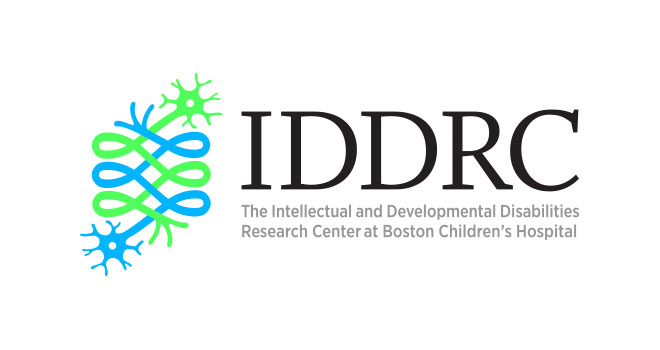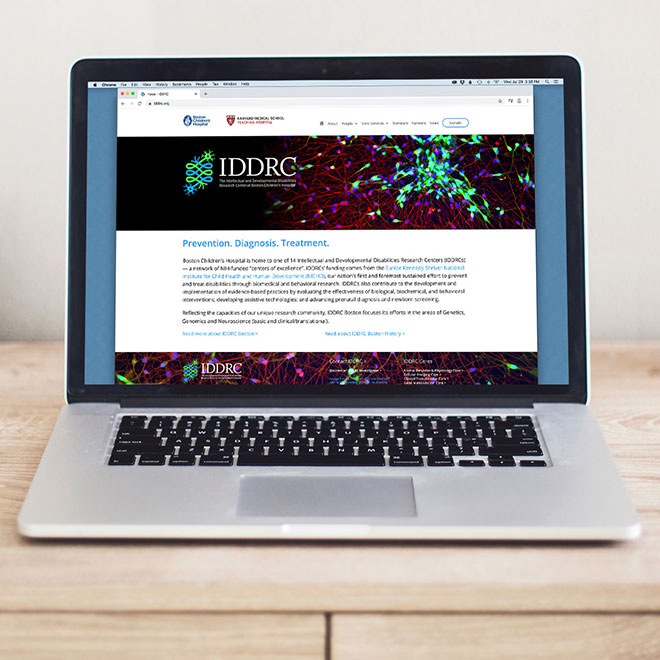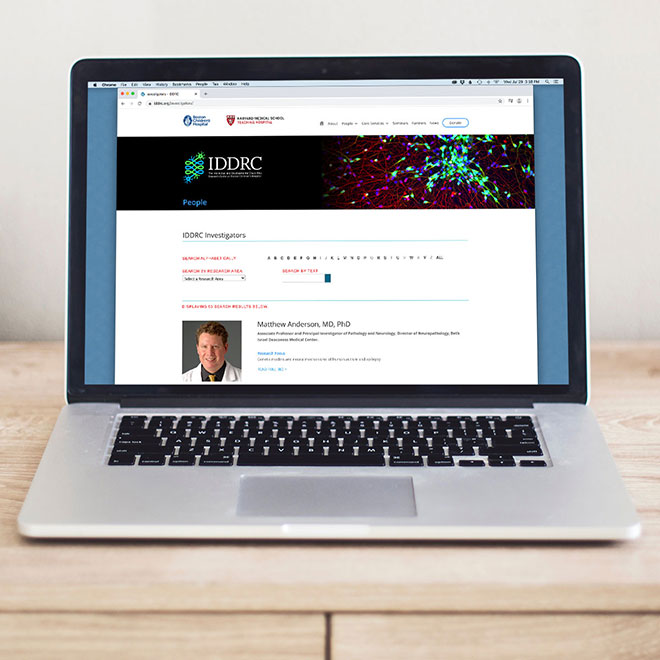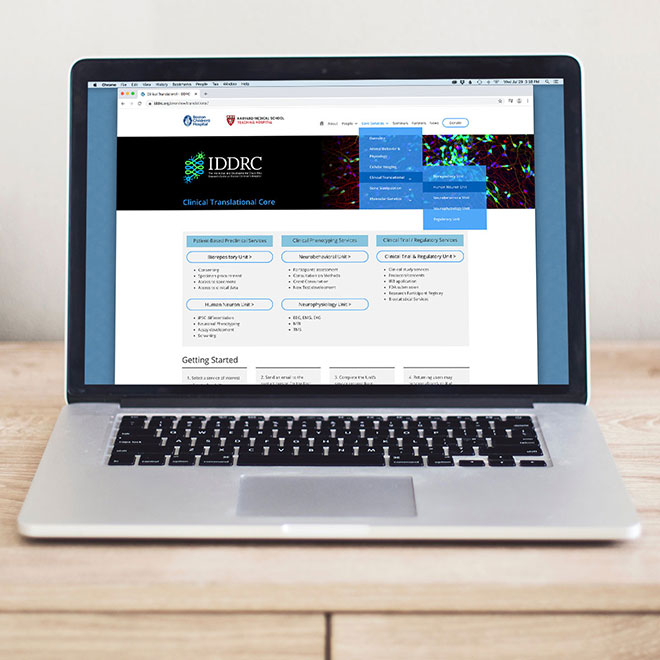




IDDRC
The Intellectual and Developmental Disabilities Research Center (IDDRC) at Boston Children’s Hospital (BCH) and Harvard Medical School (HMS) is one of 14 such centers in the country. Intellectual and developmental disabilities (IDD) collectively affect one in six individuals in the US, with profound medical, social and economic consequences. IDDRC supports over sixty investigators, whose research spans the broad spectrum of genes, synapses, cells, circuits, behavior and clinical trials.
The Mental Retardation Facilities and Community Health Centers Construction Act of 1963 provided grants to establish 12 research centers, today known as IDDRCs.
The IDDRC at BCH, among the first to be established and funded in 1968, has spent the decades since on neuroscience research that substantiate today’s understanding of the nervous system, developmental neurobiology, and neurogenetics.
Our first task was to develop an identity for the research center. A wide-ranging set of scientific pursuits all focussed on the brain and in particular on the neuron gave us a starting point. This vastly complex system is represented by two neurons that are beginning to be unwound and symbolize what the IDDRC is working to unravel.
The new IDDRC.org website presents the history, people, and research cores essential to the sustained effort to prevent and treat disabilities through biomedical and behavioral research. We built a custom investigator directory allowing users to search through all researchers by research area or keyword. Research happens across five core services represented as sub-sites, each of which is editable, exclusively, by core staff.
- Categories: Identity / Web
